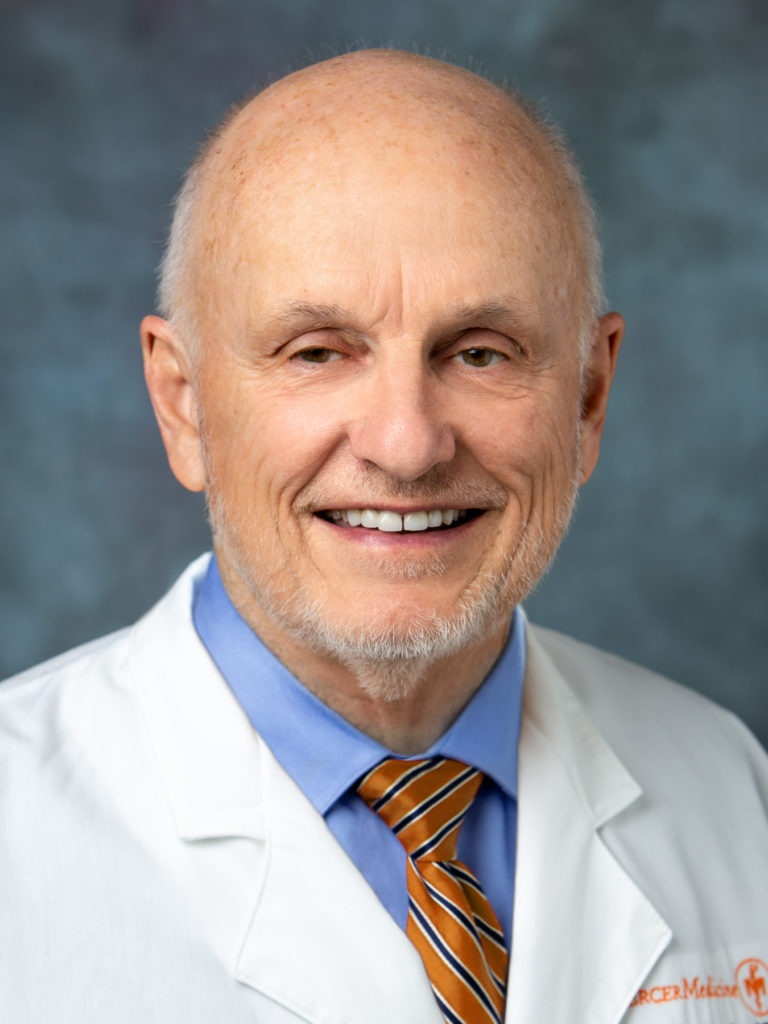Unbeknownst to Fred Barksdale, he was a “walking time bomb” for a stroke. A vascular screening at Sheffield Gym on Mercer University’s Atlanta campus a year ago revealed a blockage that was limiting blood flow from his right carotid artery. He underwent surgery in June and now has a new lease on life.
Barksdale narrowly avoided becoming part of a sobering statistic: Almost 700,000 men and women die each year from heart disease, the number one cause of death in the United States.
Awareness of this silent killer is raised during American Heart Month every February, and Mercer Wellness contributes to this initiative through special programs and resources shared during its annual Go Red Week campaign. From Feb. 22-26, Mercer will host a variety of in-person and online events, and videos and tips will be posted daily on Mercer’s Facebook and Twitter accounts.

Exercising regularly, eating healthy, controlling weight and not smoking are vital to heart health, said Dr. John Hawkins, director of clinical cardiology for Mercer Medicine. When it comes to exercise, anything that gets a person moving is good, whether that’s walking, taking an exercise class, weight training or something else.
“Walk up the steps instead of taking the elevator,” he said. “If you have work breaks, go outside to exercise. The main thing is to get in a good routine of something you can stick with. Have a buddy or partner you can walk with.”
And the more exercise, the better. Dr. Hawkins recommends 30 to 45 minutes of physical activity daily if possible, or at least every other day.
People need to pay attention to their body and be cognizant of any dramatic changes. Common symptoms of heart disease include shortness of breath, feet swelling, pain or tightness in the chest, and heart fluttering.
Regular exams with a primary care doctor and bloodwork are also key. Heart screenings are important for anyone once they reach age 50, but they should be done sooner if people have symptoms or a family history of heart issues, Dr. Hawkins said.
Routine screenings can reveal problems when a person has no symptoms, as was the case for Barksdale. He said he has always been a proponent of vascular screening, and the AngioScreen he received last year at Sheffield Gym, where he and wife Joan are members, was his third or fourth.
With his job as a healthcare manufacturer’s representative, he knew the signs of stroke and was health conscious. His wife is a dietician, so a healthy diet and exercise are part of their routine. That’s what made the test results so shocking, both to him and his doctors.

“To have something like this and not know is really scary. The only way you’re going to know if you don’t have symptoms is through diagnostic testing,” Barksdale said.
AngioScreens are a quick, relatively inexpensive way to scan for blockages and heart rhythm issues, Dr. Hawkins said. He’s had patients who, like Barksdale, have been alerted to serious issues through these tests.
Sheffield Gym generally offers AngioScreens every February during heart health month, although it wasn’t possible this year amid the COVID-19 pandemic. Mercer Medicine’s Macon locations offer vascular screenings and other on-site diagnostic testing throughout the year as part of the regular primary care clinic services.
“The fact that Karen Reynolds (director of recreational sports and wellness for Sheffield) cared enough to have AngioScreens once a year was a blessing to me and my family,” Barksdale said.
“Based on what the doctors I saw said and what I’ve read about strokes since, I was on borrowed time with that blockage. There were many negative things that could have happened to me. I feel like there’s a very definite reason that I’m still here.”









